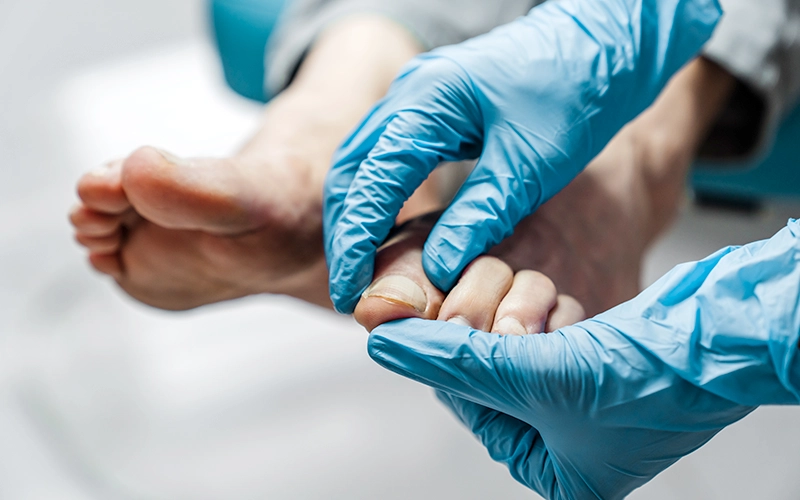About Podiatry

A podiatrist is a medical doctor focusing on the health of the lower extremities: the foot, ankle, knee, leg, and hip. They strive to improve the overall health of their patients through prevention, diagnosis, and treatment.
Your feet are an important but often overlooked part of your body. They are complex structures with many tiny bones, tendons, and ligaments to keep you going.
The health of your feet contributes to your overall health, so don’t ignore discomfort or symptoms in your feet or ankles.
Our Services
Our providers treat common conditions associated with the lower extremities, including:
- Arthritis
- Bunions and hammertoes
- Developmental abnormalities
- Foot calluses and warts
- Fractures
- Heel spurs
- Morton’s neuroma
- Nail disorders, such as ingrown nails or fungal infections
- Nerve damage to the feet caused by diabetes
- Plantar fasciitis
- Sprains
- Tendonitis
Learn more about many common podiatric conditions below.

